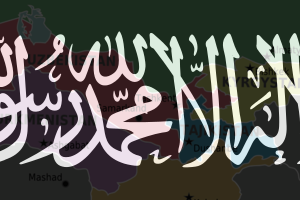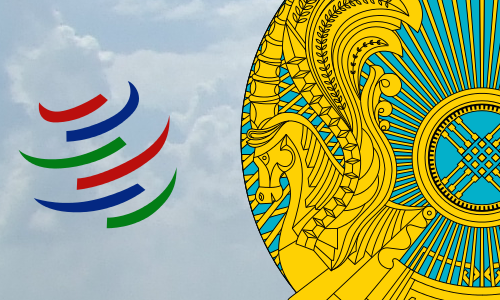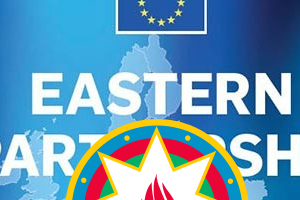Islamic State in Central Asia: threat or opportunity
By Charlie Smith (08/07/2015 issue of the CACI Analyst)
Central Asia is a key region that many believe has fallen into the crosshairs of the terrorist group calling itself the Islamic State (ISIS). Local governments are gravely concerned about returning fighters and possible ISIS infiltration in the region, and foreign powers, especially neighboring Russia and China, have expressed their deep concerns. This grim picture, however, obscures a more complex, and perhaps more accurate, story. Might the specter of ISIS have less to do with its on-the-ground ability to destabilize the region and more to do with the geopolitical concerns of those who are stating these threats?

Russia Enchances Soft Power in Georgia through Local NGOs
By Eka Janashia (06/24/2015 issue of the CACI Analyst)
Anti-western rhetoric has in recent years gained momentum in Georgian social networks, online media, and some radio and television channels. Behind the trend, observers easily detect Russian “soft power” promoted by certain Georgian non-governmental organizations (NGOs).
An “Initiative group,” committed to inform the public about actions aiming to undermine Georgia’s independence, published the report “Russian influence on the Georgian non-governmental organizations and the media.” The document lists numerous pro-Russian NGOs, founded in Georgia mostly after the Georgian Dream (GD) ruling coalition’s ascent to power in 2012, and presents a detailed analysis of their makeup and modus operandi.
According to the research, pro-Russian propaganda in Georgia’s civil sector stems from two key organizations: the “Eurasian Institute” (EI) and “Eurasian Choice” (EC), which have further spawned several other organizations and platforms.
EI is a founder of the “Young Political Scientists Club” and the “People’s Movement of Georgian-Russian Dialogue and Cooperation,” and is also a partner of “Historical Legacy” and the information portals “Sakinformi” and “Iverioni.” Historical Legacy, in turn, founded the online portal “Georgia and the World” (Geworld.ge). EI closely cooperates with various Russian organizations, including the “Caucasian Scientific Society.”
Another set of pro-Russian organizations – the “Erekle II Society” and the internet television “Patriot TV” are united under EC’s umbrella. The latter is also a partner of the “International Eurasian Movement,” led by prominent the ideologist of Kremlin expansionist policy Alexander Dugin.
While EI mainly focuses on analytical activities and outreach through organizing conferences and workshops, EC is committed to social activities by arranging protest rallies and demonstrations. The functional diversity makes the organizations effective in enhancing Russian soft power and churning anti-western rhetoric throughout Georgia.
Notably, the founders of pro-Russian NGOs as well as the participants of their conferences and meetings are mostly the same people. For example, the former public defender Nana Devdariani is a founder of several pro-Russian organizations, including “Caucasian Cooperation,” “The Center of Global Studies” and "People’s Orthodox Christian Movement.” The leader of EC, Archil Chkoidze, a person frequently quoted by Russian propaganda media, simultaneously established “Erekle II Society.”
As for cultural activities, EI conducts free Russian language courses for Georgian citizens with support of the Russian state-funded organization “Russkiy Mir.” Another Russian organization, “Gorchakov Public Diplomacy Fund,” launched the “Russian-Georgian Society Center” in Tbilisi which, among other activities, organizes tours for Georgian journalists in Russia.
In parallel, the multimedia project “Sputnik,” which is known as the locomotive of Russian propaganda media internationally, has also recently expanded its activities in Georgia. Although Georgia’s National Communications Commission deprived Sputnik of its radio broadcasting license, it has managed to secure a place in Georgia’s internet space by actively posting video materials and radio stories. Only a small share of pro-Russian NGOs in Georgia make the sources of their funding public.
The Initiative Group’s research unveils that Georgia’s pro-Russian NGOs are promoting a shift in public attitudes towards issues that were previously supported by a vast majority of the population. In a referendum held in 2008, 75 percent of the voters supported Georgia’s accession to NATO. Although the Georgian government has declared their country’s Euro-Atlantic course irreversible and that Georgia remains a committed partner to NATO and a contributor to Euro-Atlantic security, pro-Russian NGOs are cogently styling the West as an oppressor, propagating that it just needs “cheap” Georgian soldiers for its missions and will exploit the country’s territory for deployment of NATO bases and anti-missile weapons. A new referendum is therefore one of the priorities on the agenda of these NGOs.
Another component of the anti-Western discourse includes xenophobic and homophobic narratives where the U.S. and EU are depicted as destructive forces and threats to traditional social institutions in Georgia and Russia as a powerful defender of Orthodox Christianity. Most Georgians believe that Christianity is the foundation of their identity and faith the only means by which their culture can be preserved in the context of intensified globalization. Russian ideologists seek to leverage conservative attitudes among Georgians to alter the perceptions ensuing after the war between Russia and Georgia in August 2008, which strengthened the view of the Kremlin as the enemy and enhanced public support for Georgia’s Euro-Atlantic orientation. By labeling the EU as a protector of LGBT rights, Moscow seeks to change its role as an occupant into that of a generous guardian of Georgia’s historical values and identity. In this sense, the Kremlin also casts itself as a force against Islamic expansion. In 2014, EI along with the Institute of Strategic Studies, held a roundtable on the topic “Islamic ideology and security problems of the Caucasian region.” Pro-Russian NGOs promote an anti-Turkish narrative in Georgia and encourage the idea that it is better to be under Russian influence than becoming an object of the Islamic State’s expansion.
Another theme relates to the Kremlin’s “constructive” role in the resolution of Georgia’s conflicts. Proponents of this approach insist that if Georgia changes its Euro-Atlantic course and restore its strategic partnership with Russia, the latter will certainly support a peaceful settlement of the conflicts.
According to the report, the pro-Russian lineup has supporters in both the executive and legislative branches of the government. For example, the parliamentary majority member Gogi Topadze is well known for his anti-NATO statements.
While the activities of pro-Kremlin NGOs in Georgia will not easily affect the country’s foreign policy priorities, they will certainly contribute to the polarization of an already fragmented Georgian society and against the background of the country’s ongoing economic crisis, will also increase the skepticism of Western values.
Kazakhstan Completes WTO Negotiations
By Nurzhan Zhambekov (06/24/2015 issue of the CACI Analyst)
Kazakhstan completed its accession negotiations with the World Trade Organization (WTO) on June 10 and will join the WTO later in 2015. This is a milestone in Kazakhstan’s economic development. The WTO’s member states voted in favor of Kazakhstan’s accession at a meeting in Geneva on June 22, 2015. Whereas the economic impact is currently difficult to assess, the reduction in trade tariffs should in theory improve the competitiveness of Kazakhstan’s economy, leading to higher economic growth. In practice, Kazakhstan’s experience within the Eurasian Economic Union (EEU) has not been positive, as Kazakh producers have struggled to compete with larger Russian companies. Kazakh consumers are likely to benefit from Kazakhstan’s upcoming membership in the WTO, while Kazakh producers will face increasing international competition.

Azerbaijan and the EU
By Natalia Konarzewska (06/24/2015 issue of the CACI Analyst)
Azerbaijan’s president Ilham Aliyev made a last-minute decision not to attend the European Union’s May 21–22 Eastern Partnership (EaP) summit in Riga, citing the need to focus on the upcoming European Olympic Games, which were about to start in Baku. However, high-ranking officials quoted in the media asserted that president Aliyev did not attend the summit due to Western criticism towards Azerbaijan. Baku also expressed dissatisfaction with the summit’s results as Azerbaijan hoped to receive more vocal Western support for the resolution of the Nagorno-Karabakh conflict. Instead, attention was focused on human rights violations in Azerbaijan. Azerbaijan’s relationship with the EU is becoming increasingly strained and displays growing disappointment from both sides.

CACI Analyst, June 24, 2015
Contents
Analytical Articles
EXISTING PARADIGMS FOR RESISTANCE IN THE NORTH CAUCASUS CHALLENGED BY KADYROV, ISIS, by Kevin Daniel Leahy
FOOTBALL NATIONALISM AMONG IRAN’S AZERIS, by Emil Souleimanov
KAZAKHSTAN COMPLETES WTO ACCESSION NEGOTIATIONS, by Nurzhan Zhambekov
AZERBAIJAN AND THE EU, by Natalia Konarzewska
Field Reports
RUSSIA ENHANCES ITS SOFT POWER IN GEORGIA THROUGH LOCAL NGOs, by Eka Janashia
BISHKEK AND TASHKENT FACE UNEASY RELATIONS, by Arslan Sabyrbekov
TAJIKISTAN’S ISLAMIC RESISTANCE PARTY STRUGGLES TO SURVIVE, by Oleg Salimov
ARMENIA AND IRAN HOLD POLITICAL CONSULTATIONS, by Erik Davtyan





